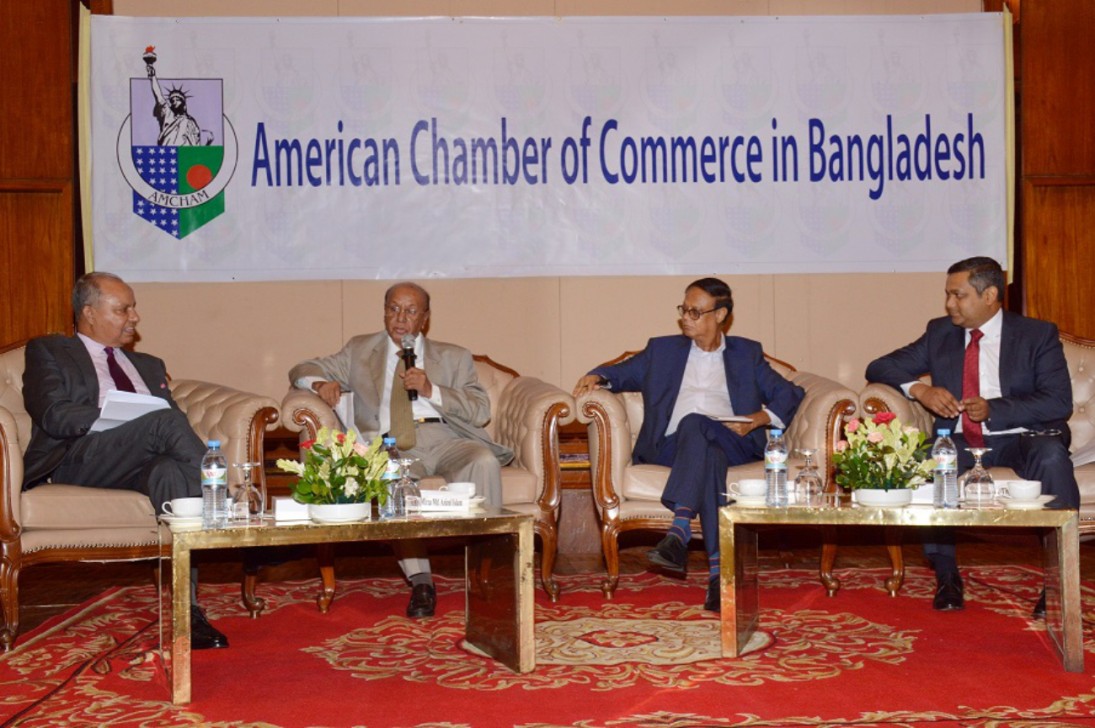NBR needs overhaul: economists

Economists yesterday suggested massive reforms in the National Board of Revenue (NBR) to separate the tax administration from tax policymaking with a view to bringing in more efficiency and fairness in revenue collection.
“Let me be very honest: we will never get out of this ‘threatening’ trap unless we reform the NBR itself,” said Ahsan H Mansur, executive director of the Policy Research Institute (PRI), at the regular luncheon meeting of American Chamber of Commerce in Bangladesh (AmCham) at the Sonargaon hotel in Dhaka.
AmCham held the meeting to share its reactions on the proposed budget for fiscal 2019-20 that was presented in the national parliament on June 13.
Economists, diplomats, businessmen and leaders of different trade bodies attended the discussion, which was moderated by AmCham President Nurul Islam.
“The NBR is the administration; it has no executives on formulation of tax policies,” Mansur said.
Administrative conveniences have been dictating the formulation of tax policies.
“This is manifested again in the proposed budget for next fiscal year,” Mansur said.
The tariff commission was not empowered enough to determine the tariff on different issues, said the senior PRI official.
Subsequently, AB Mirza Azizul Islam, former caretaker government adviser, advocated reforming the NBR. When he was in charge of the finance ministry during the caretaker government he took some initiatives to separate the tax collectors from the tax administrators. But his initiatives are yet to be implemented.
If the local business community does not invest on a massive scale then foreign direct investment will not come as the latter get confidence seeing how the domestic entrepreneurs are faring. “So, firstly we need to enthuse a lot of private investors to invest in the country,” Islam said, while calling for improving the skills of the workers for higher productivity.
He also suggested easing the regulatory framework for attracting more FDI to Bangladesh.
“Bangladesh is very much a preferred destination for foreign investors for higher costs of production in some neighbouring countries,” he added.
Shehzad Munim, president of the Foreign Investors’ Chamber of Commerce & Industry (FICCI), advised the government to give at least six months to implement the proposed multiple VAT rates so that businesses can adjust their administration accordingly.
Initially, the VAT rate was supposed to be a single rate, but later multiple rates were introduced. As a result, businesses need time to adjust to the new system, he said.
Regarding corporate tax, Munim said if companies need to pay 30 percent to 40 percent tax they need to make profits at that level.
